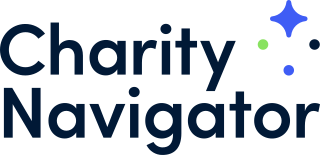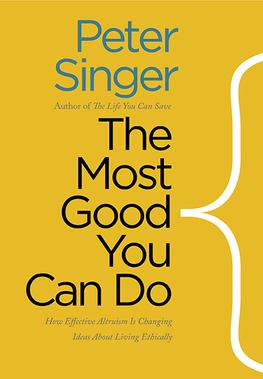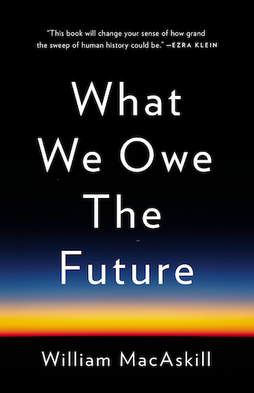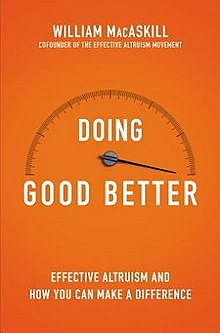
Altruism is the principle and practice of concern for the well-being and/or happiness of other humans or animals above oneself. While objects of altruistic concern vary, it is an important moral value in many cultures and religions. It may be considered a synonym of selflessness, the opposite of selfishness.

"Famine, Affluence, and Morality" is an essay written by Peter Singer in 1971 and published in Philosophy & Public Affairs in 1972. It argues that affluent persons are morally obligated to donate far more resources to humanitarian causes than is considered normal in Western cultures. The essay was inspired by the starvation of Bangladesh Liberation War refugees, and uses their situation as an example, although Singer's argument is general in scope and not limited to the example of Bangladesh. The essay is anthologized widely as an example of Western ethical thinking.

Charity Navigator is a charity assessment organization that evaluates hundreds of thousands of charitable organizations based in the United States, operating as a free 501(c)(3) organization. It provides insights into a nonprofit's financial stability, adherence to best practices for both accountability and transparency, and results reporting. It is the largest and most-utilized evaluator of charities in the United States. It does not accept any advertising or donations from the organizations it evaluates.

The practice of charity, which is the voluntary provision of assistance to those in need, serves as a humanitarian act, and is unmotivated by self-interest. Various philosophies about charity exist, with frequent associations with religion.
GiveWell is an American non-profit charity assessment and effective altruism-focused organization. GiveWell focuses primarily on the cost-effectiveness of the organizations that it evaluates, rather than traditional metrics such as the percentage of the organization's budget that is spent on overhead.

LessWrong is a community blog and forum focused on discussion of cognitive biases, philosophy, psychology, economics, rationality, and artificial intelligence, among other topics.
Giving What We Can (GWWC) is an effective altruism-associated organisation whose members pledge to give at least 10% of their income to effective charities. It was founded at Oxford University in 2009 by the philosopher Toby Ord, physician-in-training Bernadette Young, and fellow philosopher William MacAskill.
Warm-glow giving is an economic theory describing the emotional reward of giving to others. According to the original warm-glow model developed by James Andreoni, people experience a sense of joy and satisfaction for "doing their part" to help others. This satisfaction - or "warm glow" - represents the selfish pleasure derived from "doing good", regardless of the actual impact of one's generosity. Within the warm-glow framework, people may be "impurely altruistic", meaning they simultaneously maintain both altruistic and egoistic (selfish) motivations for giving. This may be partially due to the fact that "warm glow" sometimes gives people credit for the contributions they make, such as a plaque with their name or a system where they can make donations publicly so other people know the "good" they are doing for the community.

Toby David Godfrey Ord is an Australian philosopher. In 2009 he founded Giving What We Can, an international society whose members pledge to donate at least 10% of their income to effective charities, and is a key figure in the effective altruism movement, which promotes using reason and evidence to help the lives of others as much as possible.
Effective altruism (EA) is a 21st-century philosophical and social movement that advocates "using evidence and reason to figure out how to benefit others as much as possible, and taking action on that basis". People who pursue the goals of effective altruism, sometimes called effective altruists, may choose careers based on the amount of good that they expect the career to achieve or donate to charities based on the goal of maximising positive impact. They may work on the prioritization of scientific projects, entrepreneurial ventures, and policy initiatives estimated to save the most lives or reduce the most suffering.

80,000 Hours is a London-based nonprofit organisation that conducts research on which careers have the largest positive social impact and provides career advice based on that research. It provides this advice on their website and podcast, and through one-on-one advice sessions. The organisation is part of the Centre for Effective Altruism, affiliated with the Oxford Uehiro Centre for Practical Ethics. The organisation's name refers to the typical amount of time someone spends working over a lifetime.
Earning to give involves deliberately pursuing a high-earning career for the purpose of donating a significant portion of earned income, typically because of a desire to do effective altruism. Advocates of earning to give contend that maximizing the amount one can donate to charity is an important consideration for individuals when deciding what career to pursue.

William David MacAskill is a Scottish philosopher and author, as well as one of the originators of the effective altruism movement. He is an associate professor in Philosophy and Research Fellow at the Global Priorities Institute at the University of Oxford and Director of the Forethought Foundation for Global Priorities Research. He co-founded Giving What We Can, the Centre for Effective Altruism and 80,000 Hours, and is the author of Doing Good Better (2015) and What We Owe the Future (2022), and the co-author of Moral Uncertainty (2020).

The Most Good You Can Do: How Effective Altruism Is Changing Ideas About Living Ethically is a 2015 Yale University Press book by moral philosopher and bioethicist Peter Singer describing and arguing for the ideas of effective altruism. As a follow-up to The Life You Can Save, which makes the moral argument for donating money to improve the lives of people in extreme poverty, the new book focuses on the broader question of how to do the most good.

The Centre for Effective Altruism (CEA) is an Oxford-based organisation that builds and supports the effective altruism community. It was founded in 2012 by William MacAskill and Toby Ord, both philosophers at the University of Oxford. CEA is part of Effective Ventures, a federation of projects working to have a large positive impact in the world.
Open Philanthropy is a research and grantmaking foundation that makes grants based on the doctrine of effective altruism. It was founded as a partnership between GiveWell and Good Ventures. Its current chief executive officer is Alexander Berger, and its main funders are Cari Tuna and Dustin Moskovitz. Dustin says that their wealth, worth $11 billion, is "pooled up around us right now, but it belongs to the world. We intend not to have much when we die."
Charity assessment is the process of analysis of the goodness of a non-profit organization in financial terms. Historically, charity evaluators have focused on the question of how much of contributed funds are used for the purpose(s) claimed by the charity, while more recently some evaluators have placed an emphasis on the cost effectiveness of charities.

Longtermism is the ethical view that positively influencing the long-term future is a key moral priority of our time. It is an important concept in effective altruism and serves as a primary motivation for efforts that claim to reduce existential risks to humanity.

What We Owe the Future is a 2022 book by the Scottish philosopher and ethicist William MacAskill, an associate professor in philosophy at the University of Oxford. It advocates for effective altruism and the philosophy of longtermism, which MacAskill defines as "the idea that positively influencing the long-term future is a key moral priority of our time."

In the philosophy of effective altruism, an altruistic act such as charitable giving is considered more effective, or cost-effective, if it uses a set of resources to do more good per unit of resource than other options, with the goal of trying to do the most good. Following this definition of effectiveness, researchers in psychology and related fields have identified psychological barriers to effective altruism that can cause people to choose less effective options when they engage in altruistic activities such as charitable giving. These barriers can include evolutionary influences as well as motivational and epistemic obstacles.













